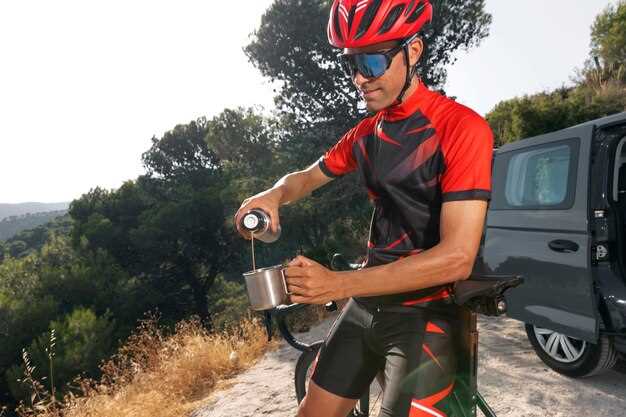
For track cyclists, the balance between endurance and performance is crucial. Athletes must optimize their nutrition and hydration strategies to ensure they can sustain high levels of activity and recover effectively. Understanding the role of macronutrients, micronutrients, and hydration is essential for maximizing training outcomes and race day success.
An effective nutrition plan for track cyclists focuses on providing sufficient energy to fuel long training sessions while promoting recovery. Carbohydrates serve as the primary energy source, and it is vital to select the right types at appropriate times. Complex carbohydrates should form the basis of daily meals, while simple carbohydrates can enhance performance during rides and aid in quick recovery.
Hydration is equally important in maintaining peak performance and ensuring optimal endurance. Even mild dehydration can impair a cyclist’s ability to perform at their best. Track cyclists should aim to maintain fluid balance before, during, and after their rides, employing strategies such as electrolyte-replenishing drinks to further enhance their performance and recovery.
Meal Timing Strategies for Endurance Performance
Meal timing plays a crucial role in enhancing endurance performance for track cyclists. Properly scheduled nutrition can maximize energy availability, improve recovery, and maintain optimal performance during training and competition.
One effective strategy is to focus on pre-event nutrition. Consuming a balanced meal 3-4 hours before a ride is essential, providing the body with carbohydrates, proteins, and fats to fuel prolonged efforts. This meal should emphasize complex carbohydrates, such as whole grains and fruits, which offer sustained energy release.
Additionally, a smaller carbohydrate-rich snack, 30-60 minutes prior to racing, can top off glycogen stores and help maintain energy levels. Simple carbohydrates, such as bananas or energy gels, are ideal for quick digestion.
During endurance events, maintaining hydration and energy levels is vital. Consuming easily digestible carbohydrates every 15-20 minutes, through sports drinks or gels, can prevent fatigue and support sustained performance. Hydration should also be prioritized, balancing fluid intake based on individual sweat rates and environmental conditions.
Post-event recovery is equally important. Consuming a meal rich in carbohydrates and protein within 30 minutes post-exercise aids in muscle recovery and glycogen replenishment. Including foods like lean meats, dairy, or plant-based proteins can enhance recovery processes and prepare athletes for subsequent training sessions.
In summary, the timing of meals and snacks surrounding endurance activities significantly impacts performance. By strategically planning carbohydrate and protein intake, cyclists can optimize energy levels, enhance recovery, and sustain high performance throughout their training cycles.
Electrolyte Management During Intense Training Sessions

For track cyclists engaged in intense training sessions, proper electrolyte management is essential for maintaining optimal hydration and overall performance. Electrolytes, such as sodium, potassium, magnesium, and calcium, play a significant role in regulating fluid balance, muscle function, and nerve impulses. During prolonged exercise, cyclists can lose substantial amounts of these vital minerals through sweat, which can impact performance and recovery if not adequately replaced.
Hydration strategies should incorporate specific electrolyte replenishment to counteract losses. Introducing electrolyte-rich beverages or supplements during training can help maintain levels of sodium and other key minerals. It is important to consider the concentration of electrolytes in your hydration solution. A well-balanced mix will optimize absorption and provide sustained energy without causing gastrointestinal distress.
During intense sessions, cyclists should monitor their sweat rate and adapt their electrolyte intake accordingly. A general recommendation is to consume an electrolyte solution at a concentration of 500 to 700 mg of sodium per liter of water. This helps to stimulate thirst and improve fluid retention, ensuring that hydration levels remain stable throughout the workout.
Furthermore, timing is crucial for effective electrolyte management. Begin hydrating with electrolytes before the training session starts, continue during the ride, and replenish after the workout to promote recovery. Including a post-training snack or meal that is rich in electrolytes helps to restore lost minerals and supports muscle recovery.
Ultimately, integrating electrolyte management into hydration practices can significantly enhance endurance and performance for track cyclists. By understanding individual sweat rates and electrolyte needs, cyclists can fine-tune their hydration strategies, ensuring they remain well-hydrated and ready to tackle any intense training challenge.
Post-Ride Recovery Nutrition for Enhanced Adaptation

Post-ride recovery nutrition is crucial for track cyclists seeking optimal performance and improved endurance. The primary goal following a ride is to replenish glycogen stores, repair muscle damage, and rehydrate effectively. Adequate recovery nutrition can significantly enhance adaptation to training, leading to better performance in subsequent sessions.
Immediately after a ride, cyclists should focus on consuming carbohydrates and protein in a ratio of approximately 3:1. This combination accelerates glycogen replenishment and muscle repair. High-quality carbohydrate sources include sports drinks, energy bars, or fruit, while protein sources can be derived from whey protein shakes, Greek yogurt, or lean meats. Consuming these nutrients within 30 minutes post-ride is ideal for maximizing recovery benefits.
Hydration also plays a pivotal role in recovery. Cyclists should aim to rehydrate with water or electrolyte-rich beverages to replace lost fluids and maintain optimal hydration levels. This is particularly important as even mild dehydration can impair performance and recovery. Including sodium and potassium in post-ride fluids helps in restoring electrolyte balance, aiding muscle function and overall recovery.
In addition to the initial recovery meal, a balanced meal containing carbohydrates, proteins, and healthy fats should be consumed within two hours after the ride. This meal could include options like grilled chicken with quinoa and roasted vegetables or a whole grain wrap with assorted fillings. Such meals not only support recovery but also prepare the body for future endurance training sessions.
Lastly, incorporating anti-inflammatory foods, such as berries, leafy greens, and fatty fish, can enhance recovery by reducing inflammation and muscle soreness. This approach, combined with adequate rest and sleep, significantly contributes to the adaptive responses desired from training, enabling track cyclists to reach their performance goals effectively.
